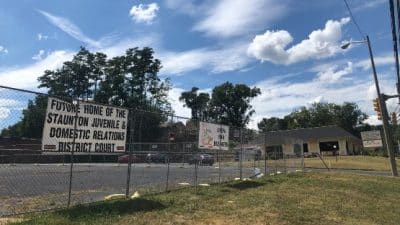For some, November heralded the light at the end of the tunnel. For others it seems like the headlamp of the oncoming train. Recreational marijuana laws were on the ballot in Alaska, Oregon, the District of Columbia and Florida. They passed comfortably in Alaska, Oregon and DC. Florida’s Amendment 2, requiring 60 percent support, fell two points shy. But the 58 percent showing sends a clear signal.
But the path forward has not been cleared of obstacles. The operation of outlets for either medical or recreational marijuana is ultimately governed by municipal ordinance. And marijuana remains a Schedule 1 controlled substance under federal law. But the Department of Justice links federal priorities on a case-by-case basis to the availability of medical marijuana in states and municipalities.
This makes for a highly complex landscape for civic advocacy. But this landscape can be navigated by taking the time to understand the concept of ‘jurisdiction’ and the decision-making landscape of local communities. Here is a primer:
Jurisdiction and Civic Advocacy
One of the most common mistakes in civic advocacy is calling the wrong office. The staffer on the other end of the line will listen patiently, but eventually say something like “we don’t handle that issue here, but you can call…” It seems to be the bureaucratic run-around where the person at every window sends you to a different window. “Isn’t there anyone here at City Hall that actually works?” The staffer is telling the truth, though. Different issues are handled at different levels of government, and medical/recreational marijuana is certainly an example.
It usually starts with a call to City Hall about a rogue operation. “Why can’t the police do something?” The answer to that question, then, runs up to the District Attorney (“DA” for short in most places), usually an office of county government. The police will be hemmed in by the ability of the DA to prosecute. If the state has a law allowing ‘compassionate use’ (the term used here in California), the ‘burden of proof’ for the DA might be very high. The police will not make arrests unless they are confident the DA will take the matter to court.
“But marijuana possession is against the law!” Yes, but it is against federal law, and generally speaking, local police do not file charges in federal court. Here, the advocate has to engage the local office of the U.S. Attorney, whose priorities will be set by the U.S. Department of Justice (e.g. the current DOJ ‘Cole Memo’). Advocacy at this level should start with congressional representation.
But in the end, the operation of a ‘business’ distributing a ‘product’ will be subject to local land-use laws. This is the most immediate venue for advocacy, but not necessarily the most effective. While municipal officials can shut down an operation, it can – and will – pop up somewhere else shortly. It can end up being a game of Whack-a-Mole.
Decisions are Made By Those Who Show Up
So show up! The easy thing is to make calls and write letters. The harder, and more time-consuming thing is to show up at local meetings. Don’t try to ‘find’ time for this. Trust me, it is very good at hiding behind things like the kids’ homework and high school football games. Make the time. Start by contacting your local government representative (e.g. City Council, Town Council, etc.). Only instead of calling to complain about the pot shop that just sprouted in the neighborhood, call to inquire into what local group meetings the staff attends. Make this same call to your congressperson’s office. If staff from your local and federal representation refers you to the same meeting, obviously that is where you want to start.
Having made the time to attend the meeting, don’t be put off if it seems a bit ‘officious’ or pompous. Some of these groups are very informal. But others have to follow laws designed to ensure minority concerns are fairly heard. This means they might be required to follow things like Robert’s Rules of Order when conducting their meetings.
Make it a point to attend at least one of these meetings each month. And don’t be afraid or unwilling to be ‘volun-told’. If there is graffiti to be painted over, for example, concerns about marijuana shops from a neighbor who got dirty with the other members painting over graffiti on Sunday morning will carry a lot more weight at the meeting on Monday night when the group votes to make a recommendation on land-use ordinances.
Build Relationships With Staff
This starts with the phone call. But before you pick up that phone, stop for a minute and think about what the person who answers your call does most of their day. They answer calls from people like you. Only more often than not, this means listening to a tirade or screed from a constituent who is angry about something. Consider for a moment what doing that all day, five a week (or more), 52 weeks a year is like. There is a reason these staff folks tend to be younger people just getting started in public policy work. The lesson: don’t be just another irate constituent. Be a breath of fresh air for a young person in a difficult job. They will remember that.
And make sure you are well informed. If you are advocating in favor of having medical marijuana available in your community, make sure you can tell accurate stories of the lives of real people (preferably local people) who have been helped. Look particularly for people suffering from seizure disorders; the active ingredient in marijuana seems to hold a lot of promise for these patients without the severe side effects that accompany other anti-seizure medicines.
If you are advocating against it, be on top of facts like the significantly longer half-life of marijuana’s active ingredient in the blood stream (compared to alcohol) and the increased likelihood of death (4 times greater compared to people with no Substance Use Disorder) among those who use marijuana. The lesson: Don’t be just another irate constituent who has no idea what they are talking about. Staff remembers that, too – and works to protect their principal from people like that.
Don’t Let the Perfect Be the Enemy of the Good
There are few issues for which this dictum better fits than medical/recreational marijuana. Opponents will object to the idea this is inevitable. But the numbers do not lie. Opponents are correct, however, that medical/recreational marijuana does not have to be inevitable in your neighborhood – communities in both California and Colorado have succeeded in keeping marijuana storefronts out of their neighborhoods.
But elected representatives at the local level are often looking for “how we can” rather than “why we can’t” (or why we shouldn’t). Civic advocacy that takes into account the arc of popular sentiment and seeks a solution that enforces reasonable restrictions will get the attention of civic leadership. Local community groups should strive to work with staff to solve problems like medical/recreational marijuana shops without having to involve the elected representative. These groups will have much greater influence on this and other issues.
But this can only happen when the people who involve themselves in the decision-making of the community work to build consensus. And the first requirement of that work is distinguishing the ‘perfect’ from the ‘good’. Those who charge head first into a debate without doing this often end with neither. And for having failed to get the ‘perfect’ solution, they usually end up abdicating their opportunity to influence the end result in what otherwise might have been a ‘good’ direction. And that loss will further erode their ability to influence local government on other issues in the future.
Government at all levels works best when people nurture a sense of ownership in their community. This means that when something is broken, fixing it is not someone else’s job. The best solutions rarely emerge from a cubicle somewhere downtown. As medical/recreational marijuana approaches from the horizon, few issues offer a better opportunity to master the decision-making landscape at all levels of government. Whether you are for or against it, understand the role of different jurisdictions, show up at local meetings, build relationships with staffers, and try not to let the perfect be the enemy of the good.











